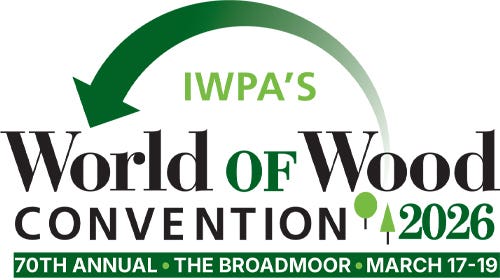Lacey Act at core of Gibson probe
The Gibson Guitar Corp. issued a statement in August stating that government officials had raided its manufacturing facilities in Nashville and Memphis, Tenn., and seized several pallets of wood, guitars…
The Gibson Guitar Corp. issued a statement in August stating that government officials had raided its manufacturing facilities in Nashville and Memphis, Tenn., and seized several pallets of wood, guitars and electronic files. The announcement led to an uproar in the woodworking and lumber supply industries as to the federal government’s enforcement of the Lacey Act, which bans the use of illegally harvested timber.
Gibson officials could not be reached for comment. But in a statement, chairman and CEO Henry Juszkiewcz said, “Gibson is innocent and will fight to protect its rights.”
Industry and environmental officials say this was an isolated incident with a large corporation that was deemed by federal officials to have failed to comply with the Lacey Act. They say smaller furniture and cabinetry business owners should not be concerned and believe the Gibson incident is being overblown for political reasons.
The Lacey Act was established in 1900 to protect wildlife. Today it is primarily used to prevent the importation or spread of potentially dangerous non-native species. It has been amended often, most recently in 2008 to prevent illegal logging practices.
Lindsey Allen, forest program director for the Rainforest Action Network, says the intent of the law is good. She says it keeps illegally harvested products from entering the domestic market and undercutting developed sustainable practices.
“What the government is going after are these networks and groups who are promoting and profiting from the illegal logging. They’re not going to go into your home to take your table or your guitar. The officials are looking for big players that are implicit in the trade and determining how to enforce action so that they shut that trade down.
“The reason the issue with Gibson Guitars is so messy right now is because there’s an investigation going on and we don’t have all of the facts. It’s not that they’ve been found guilty. They’ve been accused of violating the act,” says Allen.
Mark Barford, executive director of the National Hardwood Lumber Association, which worked with other industry and environmental groups on the 2008 amendment, says the intent was to create a fair playing field for trading lumber around the world. Rather than make a new law to control illegal timber, the consensus was that the best solution was to add an amendment to include wood products. As for the Gibson Guitar incident, Barford says the association remains neutral in its opinion.
“We don’t know any of the details of the case, nor does anybody. It is, unfortunately, the first time the act has been enforced where there is an alleged blatant disregard for the law. The government felt that Gibson had not done the proper work. I know nothing about it. We’re supporters of Gibson. We’re certainly in favor of them and want to see them treated fairly by the government and, if there’s a problem in the way the law is applied, then that needs to be addressed.”
Barford says Gibson obtained wood out of India in a way that didn’t comply with Indian law and that triggered an investigation.
“The India law had nothing to do with this environmentally. It had to do with the amount of hours put into the manufacturing of a product before it was shipped out. That is not addressed in Lacey, but the Lacey Act says you have to bring in legal timber. So it is illegal because they broke a different law in India, even though it has nothing to do with environmentalism, and this is where the issues lie,” he says.
“Agents seized wood that was Forest Stewardship Council-approved,” Juszkiewicz said in a statement. “Gibson has a long history of supporting sustainable and responsible sources of wood and has worked diligently with entities such as the Rainforest Alliance and Greenpeace to secure FSC-certified supplies. The wood seized on Aug. 24 satisfied FSC standards.”
Gibson’s Nashville factory was also raided by government agents in 2009, when guitars and ebony fingerboard blanks from Madagascar were seized.
Barford and Allen both said that officials are examining whether any administrative or regulatory changes need to be addressed or if the Lacey Act should be amended again. Some suggestions include an innocent-owner provision so a buyer doesn’t have to be responsible for asking wholesalers questions about the source and harvesting of the timber. Opponents say that would defeat the purpose of the law.
“People do believe they can be personally liable and have their personal material seized by the government. The government has come out with several statements and said that won’t happen,” Barford says.
This article originally appeared in the December 2011 issue.







